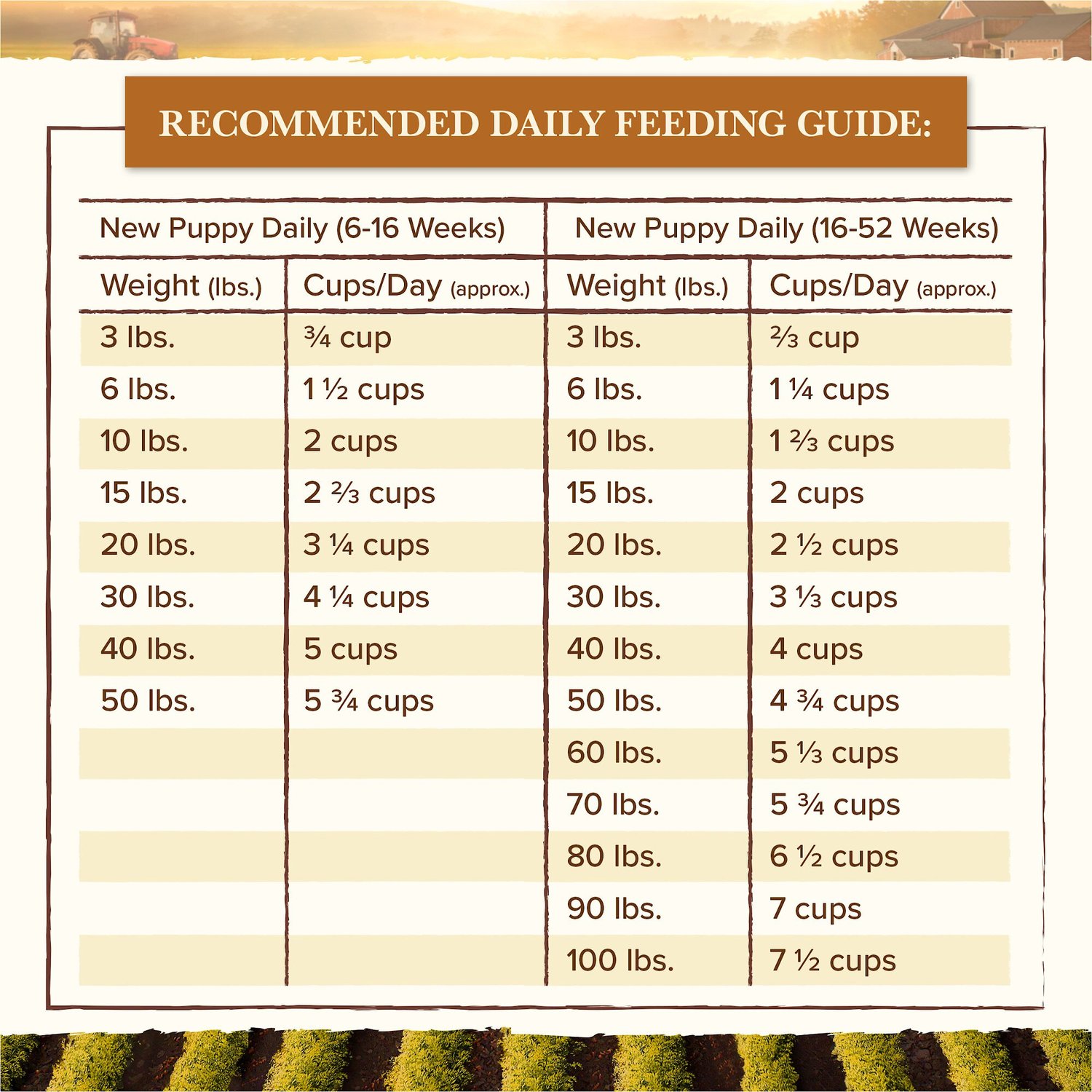If you’ve recently welcomed a lovable Boston Terrier puppy into your home, you’re probably wondering, “When should I feed my adorable new friend?” Well, fret not, because I have the answers you seek! Feeding your Boston Terrier puppy at the right time is crucial for their growth, health, and happiness.
Proper nutrition is essential during the early stages of a Boston Terrier puppy’s life. So, let’s dive into the specifics of when and how often you should feed your furry bundle of joy.
Now, I know you might be curious about when to feed your Boston Terrier puppy, but don’t worry, I’ve got you covered!

When to Feed a Boston Terrier Puppy: A Comprehensive Guide
Feeding your Boston Terrier puppy is a crucial aspect of their overall health and well-being. As a responsible pet owner, it is essential to understand when and how often to feed your puppy to ensure they receive the proper nutrition they need. This comprehensive guide will provide you with all the information you need on when to feed your Boston Terrier puppy, including the recommended feeding schedule, portion sizes, and tips for a healthy diet.
Recommended Feeding Schedule for a Boston Terrier Puppy
Developing a consistent feeding schedule is important for your Boston Terrier puppy’s growth and development. Here is a breakdown of the recommended feeding schedule:
1. Breakfast: Start the day with a nutritious meal to kickstart your puppy’s energy levels. Feed them a portion of high-quality puppy food formulated for small breeds. Divide their daily portion into two meals, spaced about 4-6 hours apart. This will prevent overeating and aid in digestion.
Benefits of a Consistent Feeding Schedule
Establishing a consistent feeding schedule for your Boston Terrier puppy offers several benefits:
- Regulated Digestion: Having regular meal times helps regulate your puppy’s digestion and prevents stomach upsets or other gastrointestinal issues.
- Controlled Weight: Following a set feeding schedule ensures that your puppy gets the right amount of food, preventing overeating and weight gain.
- Bonding Time: Feeding your puppy at consistent times creates a routine and strengthens the bond between you and your pet.
How Often to Feed a Boston Terrier Puppy
During their first few months, Boston Terrier puppies require more frequent feeding due to their smaller stomachs and faster metabolism. As they grow, you can gradually decrease the number of meals per day. Here is a general guideline:
From 8 to 12 weeks: Feed your Boston Terrier puppy 4 meals a day, evenly spaced throughout the day.
From 12 to 16 weeks: Reduce the feeding frequency to 3 meals a day.
From 16 weeks onwards: Transition to 2 meals a day, one in the morning and one in the evening.
Choosing the Right Puppy Food
Selecting the right puppy food is essential for your Boston Terrier’s overall health and growth. Look for high-quality puppy food that is specifically formulated for small breeds. Here are a few factors to consider when choosing the ideal puppy food:
Nutritional Requirements
Ensure that the puppy food you choose meets the nutritional requirements for Boston Terrier puppies. Look for a well-balanced formula that contains essential nutrients such as protein, fat, carbohydrates, vitamins, and minerals.
VS
Wet Food vs. Dry Food: Which is Better?
When it comes to feeding your Boston Terrier puppy, you may wonder whether wet food or dry food is the better option. Both types have their advantages and disadvantages, so it ultimately comes down to personal preference. Here is a comparison to help you make an informed decision:
| Wet Food | Dry Food |
|---|---|
| Contains higher moisture content, aiding in hydration | Requires less storage space and is more convenient for travel |
| Can be more palatable, especially for picky eaters | Promotes dental health by reducing plaque and tartar buildup |
| May be more expensive and spoil quickly once opened | Dry kibble can help maintain healthy teeth and gums |
Tips for Feeding a Boston Terrier Puppy
Feeding a Boston Terrier puppy requires some careful consideration and attention to detail. Here are a few tips to ensure your puppy’s mealtimes are enjoyable and beneficial:
1. Measure Portions:
Use a measuring cup to accurately portion your puppy’s meals. Follow the feeding guidelines provided by the manufacturer based on your pet’s age, weight, and activity level.
2. Avoid Overfeeding:
Boston Terriers are prone to obesity, so it’s important to avoid overfeeding. Stick to the recommended portion sizes and avoid giving excessive treats or table scraps.
3. Monitor Weight:
Regularly monitor your Boston Terrier puppy’s weight to ensure they are growing at a healthy rate. If you notice any sudden weight gain or loss, consult your veterinarian for guidance.
Feeding a Boston Terrier Puppy on a Raw Diet
A raw diet, also known as a BARF (Biologically Appropriate Raw Food) diet, is an alternative feeding option for Boston Terrier puppies. This diet consists of raw meats, bones, organs, and vegetables. However, it is crucial to consult with a veterinarian or canine nutritionist before transitioning your puppy to a raw diet, as it requires careful planning and monitoring to ensure nutritional balance and safety.
Conclusion:
Feeding your Boston Terrier puppy at the right time and with the right food is vital for their growth and overall health. Establishing a consistent feeding schedule, choosing high-quality puppy food, and following portion control guidelines will help ensure a happy and healthy life for your furry friend. Remember to always consult with your veterinarian for personalized advice and recommendations tailored to your Boston Terrier puppy’s specific needs.
Key Takeaways: When to Feed Boston Terrier Puppy?
- 1. Feed your Boston Terrier puppy three times a day.
- 2. Stick to a consistent feeding schedule to establish a routine.
- 3. Avoid free-feeding and only leave food out for a limited time.
- 4. Follow feeding guidelines based on your puppy’s age and weight.
- 5. Monitor your puppy’s body condition and adjust the portion sizes if needed.
Frequently Asked Questions
In this section, we will address some common questions about feeding a Boston Terrier puppy.
1. How often should I feed my Boston Terrier puppy?
It is recommended to feed your Boston Terrier puppy three times a day until they reach six months of age. This helps provide them with the necessary nutrients to support their growth and development. After six months, you can switch to feeding them twice a day.
Remember to divide their daily recommended portion into smaller meals to prevent overeating or digestive issues. Consulting with your veterinarian can help determine the exact feeding schedule and portion sizes based on your puppy’s individual needs.
2. What is the best time to feed my Boston Terrier puppy?
The best time to feed your Boston Terrier puppy is in the morning, midday, and evening, evenly spaced throughout the day. This helps maintain their energy levels and prevents hunger pangs. Avoid feeding them too close to sleeping time to prevent discomfort, and ensure they have enough time to digest their food before bedtime.
Establishing a consistent feeding schedule will also aid in housebreaking your puppy, as they will develop a regular bathroom routine. Remember to provide fresh water at all times and monitor their eating habits to ensure they are eating enough and maintaining a healthy weight.
3. Can I free-feed my Boston Terrier puppy?
Free-feeding, where food is available to the puppy at all times, is not recommended for Boston Terrier puppies. These puppies have a tendency to overeat, which can lead to obesity and associated health problems. It is important to control their portion sizes and feeding schedule to ensure they receive the right amount of nutrition.
Monitoring their food intake also allows you to keep an eye on their appetite and detect any changes in their eating habits, which could indicate underlying health issues. Regular meals also aid in training and bonding, as you can establish a routine and reward them with meals during training sessions.
4. How do I transition my Boston Terrier puppy to adult dog food?
Transitioning your Boston Terrier puppy to adult dog food should be a gradual process. Start by mixing small amounts of the new adult food with their current puppy food, gradually increasing the ratio of the new food over several days. This helps their digestive system adjust to the new food without causing stomach upset or diarrhea.
If your Boston Terrier puppy has any specific dietary needs or health conditions, consult with your veterinarian to determine the best time to transition and the appropriate type of adult dog food for your pup. Remember to always provide them with a balanced diet to support their overall health and wellbeing.
5. How can I tell if my Boston Terrier puppy is getting enough food?
It’s important to monitor your Boston Terrier puppy’s body condition to ensure they are getting enough food. A well-fed puppy should have a visible waistline when looking from above and a gentle curve to their sides. You should be able to feel their ribs without seeing them, indicating a healthy weight.
If you’re unsure whether your puppy is getting enough food, consult with your veterinarian. They can help assess your puppy’s growth rate and body condition and make any necessary recommendations for adjusting portion sizes or feeding schedules based on their individual needs.

Summary
So, when it comes to feeding your Boston Terrier puppy, here are the key points to remember:
1. Puppies need to eat more frequently than adult dogs, so feed them three to four times a day.
2. Follow the guidelines on the puppy food packaging for portion sizes to ensure they are getting the right amount of nutrients.
3. Avoid giving your puppy any human food or treats that could be harmful to their health.
4. Gradually transition them from their mother’s milk to solid puppy food over a period of a few weeks.
5. Consult your veterinarian for any specific dietary requirements or concerns about your puppy’s nutrition.
Remember, a healthy and balanced diet is crucial for your Boston Terrier puppy’s growth and wellbeing. Happy feeding!
